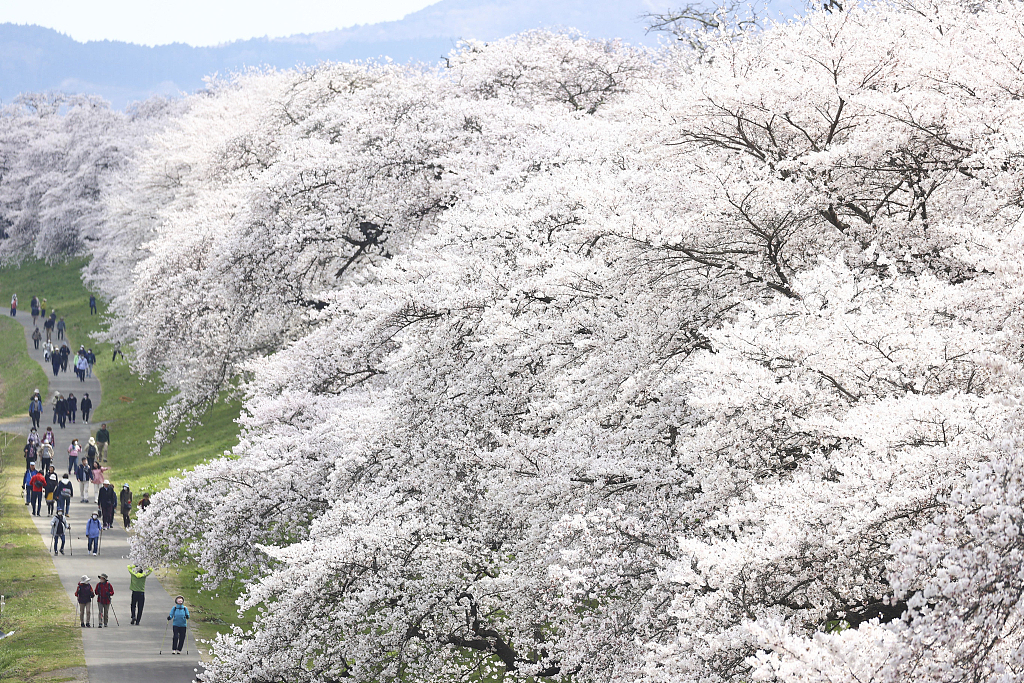Cherry blossoms, which originated in China, gained enormous popularity in Japan after being introduced to the country during the Tang Dynasty (618-907). The annual tradition of "flower viewing" has become such a big event that people travel from all over the world to Japan in the hopes of riding the pink wave.
Initially, flower viewing, known as Hanami in Japanese, was viewed as an activity for nobles until the 1600s when it became popular among the general public. Nowadays, walking under a blanket of lush cherry blossoms with friends or family has become a symbolic activity in early spring in Japan. Over time, more activities such as special events and festivals were held, with many picnicking under the trees to enjoy the flowers' fleeting beauty.

Cherry blossoms trees in Tokyo, Japan. /VCG
Cherry blossoms trees in Tokyo, Japan. /VCG
The inclusion of cherry blossoms in films, and even online games, has also increased the visibility of Japan's cherry blossom culture, so much so that for many, cherry blossoms are synonymous with Japan.
In Japanese culture, cherry blossoms represent a season of renewal and the fleeting nature of life.
Cherry blossoms have also had a significant economic impact on the country. During the cherry blossom season in 2019, 63 million tourists visited Japan. Over five million foreign tourists visited Japan specifically to see the cherry blossoms from March to April. Cherry blossom tourists, including domestic tourists, spent more than 301 billion yen (about $2 billion) on tourism in Japan. The economic impact of cherry blossoms in Japan is comparable to that of the Olympics.
Cosmetic and sportswear companies soon began to take advantage of the flower's popularity. They launch limited edition products with cherry blossom themes during the spring, creating an ideal marketing time to sell more products and promote brand publicity.
With the widespread use of social media, Japan's cherry blossom culture spread even faster, further boosting the already thriving flower-based industry.
(Cover image via VCG.)
(If you have specific expertise and want to contribute, or if you have a topic of interest that you'd like to share with us, please email us at nature@cgtn.com.)